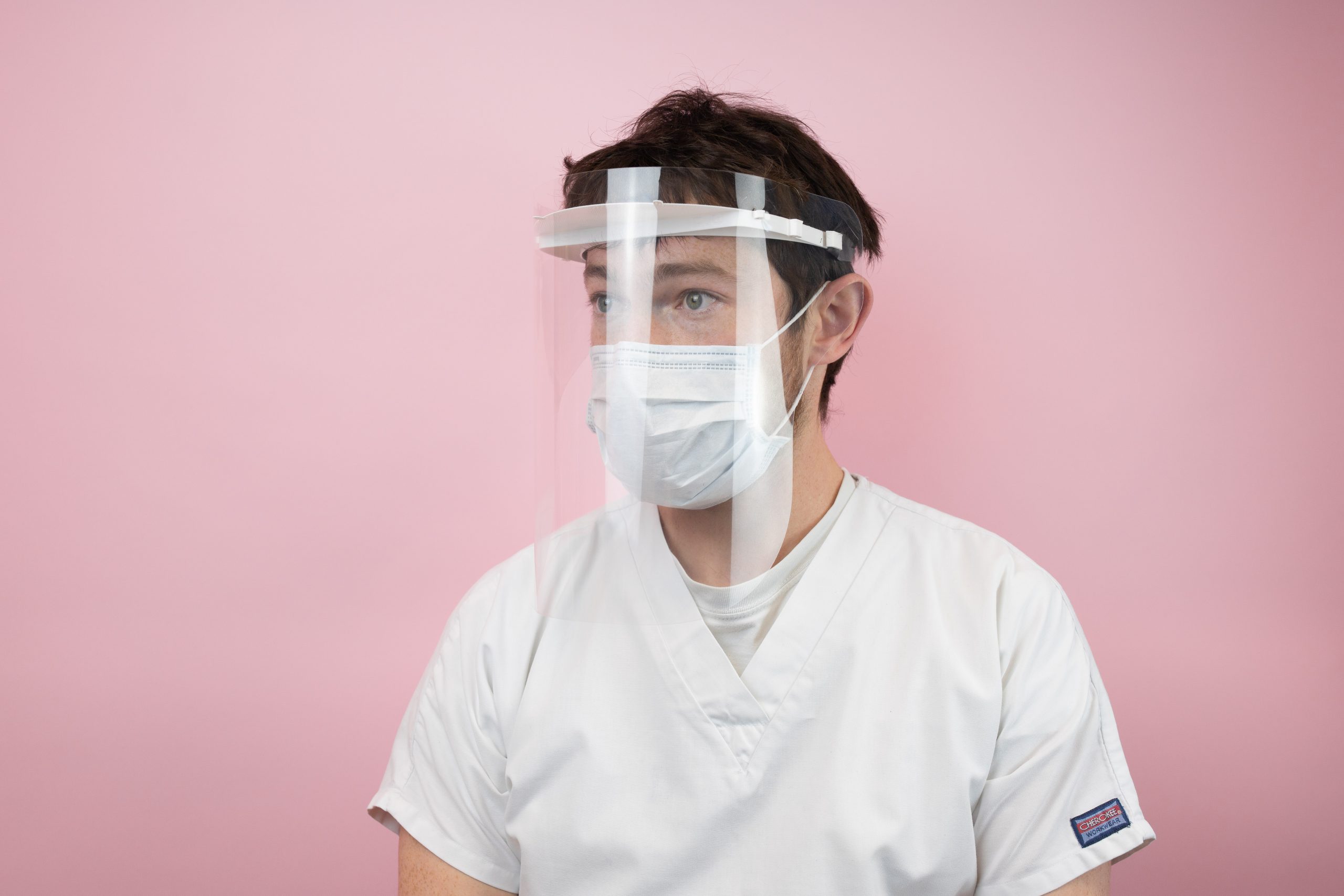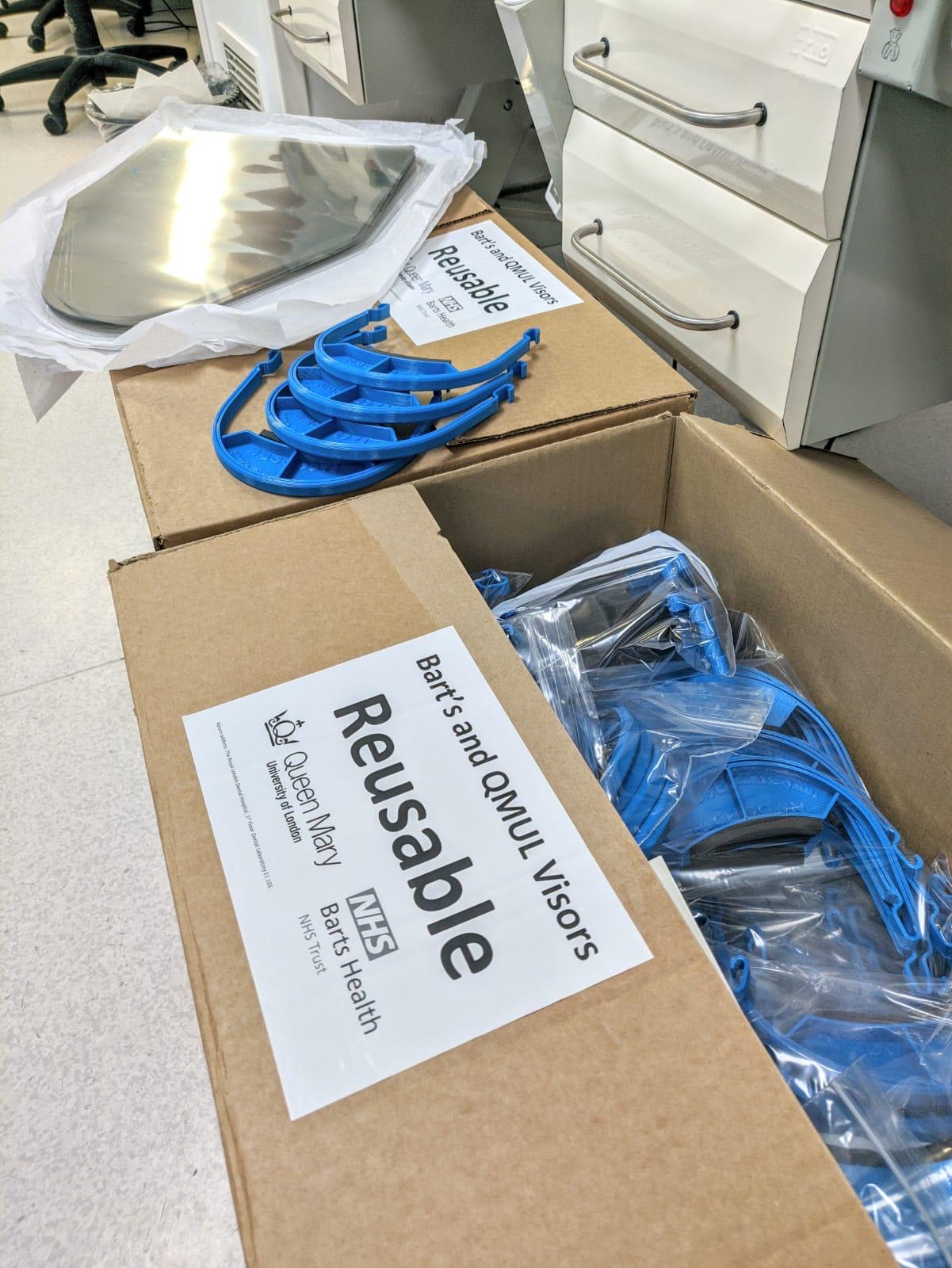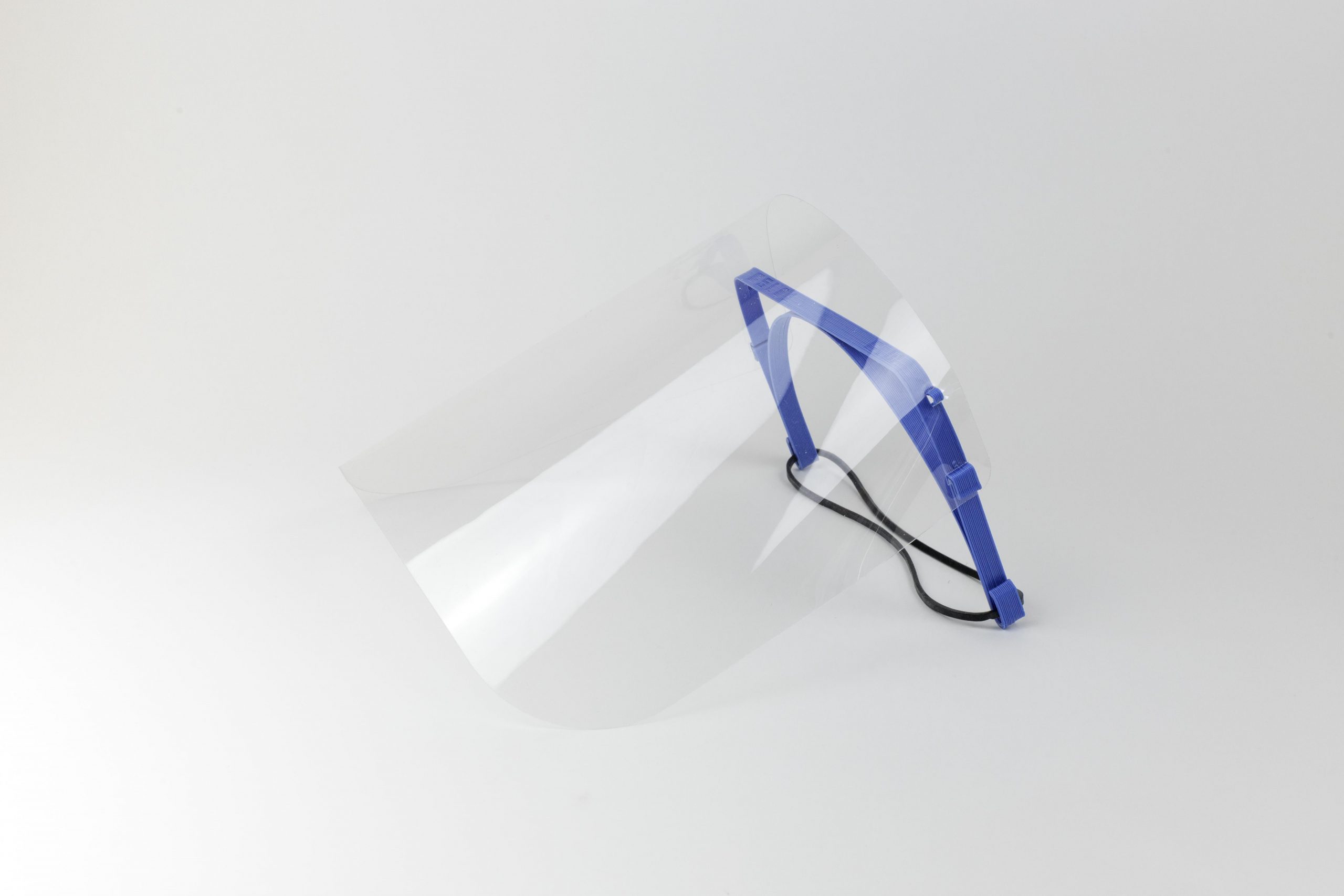Batch.shield

Useful information
- Team members
- Milo Mcloughlin-Greening, Julien Vaissieres
- Country
- United Kingdom
- Keywords
- PPE FDM 3DPinting Covid19 PET circular design
Short Description
An efficient 3d printed face shield for the covid 19 effort. Designed to prove a distributed model.
Detailed Description
With the outbreak of Covid 19 the need for a local and resilient alternative to traditional supply chains was proven. The Batch.shield project was able to quickly react and create tens of thousands of PPE face shields for front line workers across London. The efficiency of the Batch.work’s design for manufacture method is what sets the project apart from similar initiatives. Enabling Batch.shield to produce the same number of units as other collectives with ten times the resources. Batch.works is focused on taking realistic steps towards a circular economy, working closely with St Bartholomew's Trust to develop a PPE take back scheme, allowing them to repurpose products at the end of their initial use phase.
Project Details
- Does your design take social and cultural challenges and human wellbeing into consideration?
The batch.shield project was born from a voluntary effort during the covid19 outbreak in the uk. With the understanding that batch.works had the resources and facilities to produce a product that could help to save lives. The project was initially funded through a community effort with people from all walks of life donating to pay for the materials needed to manufacture these vital objects.
- Does your design support sustainable production, embodying circular or regenerative design practices?
Through maintaining control of the production process batch.Shield has also been able to take responsibility for the plastic that it is releasing into the market. All of the batch.shield products have been produced using recycled PET filament from the dutch company re-flow ensuring that as little virgin material is used as possible. Compared to other models that lose grasp of materials as they leave the factory, batch.shield is employing a recovery system with the locations that have received their products. This level of control means that material can be tracked and returned when the products are no longer in use so that material can be repurposed in the future.
Due to the localised nature of the project batch.shield was able to partner with a local bicycle delivery company to cycle finished products to their final locations in reusable containers.
- Does your design use principles of distribution and open source?
The batch.shield project is not unique in its effort to manufacture 3D printed face shields for the covid effort, however the focus of the project has been on the development of the system rather than just the product itself. To highlight the possibility for a distributed model to be a realistic alternative to mass manufacture, a business case had to be proven. The strategy for this has been to focus on reusability compared to single use alternatives. An imported face shield costs around £0.60/unit (€0.66) when bought in large quantities. A batch.shield reusable head band and visor costs around £4.00 (€4.37). Due to the reusable nature of the design each unit becomes better value for money than an imported product in less than 10 uses.
There have been thousands of examples of makers across Europe and the world producing face shields using a downloaded design however batch.shield is unique in the levels of efficiency in its design for manufacture along with the opportunities taken to develop a localised closed loop system of material recovery.
The batch.shield project has been specifically designed to be manufactured using the batch.works production system. Proving a realistic distributable method of manufacture is possible is at the centre of the batch.works mission. Through the design of a scalable and repeatable customised factory units Batch.works aim to launch hubs in multiple locations to create a working distributed model. The batch.shield has proven that this inner city hub can work; this can now go on to be repeated elsewhere. At the time of writing the next batch factory is in production and will be located in Brighton as a pilot for the distribution of the Batch.works model.
- Does your design promote awareness of responsible design and consumption?
The forerunner of the downloadable face shield designs was created by Czech 3D Printer manufacturer Pruser. The Pruser design was quickly spread across the globe with makers beginning to manufacture in their homes without a second thought for where or how these might get into the hands of those that need them. The batch.shield project has taken a more thoughtful approach, through working directly with local hospitals to manufacture products specified to fit their needs. Working with doctors at St bartholomew's trust Batch.shield was able to take a design that was created by the doctors and optimise it for production using the batch.works DFM method. Working in this way meant that an optimised design taking 15 minutes to print per unit (compared to the Pruser design that takes 156 minutes per unit) was able to get into the doctors hands without any concern of producing a wasteful and impassable product.
The Batch.shield project has become an exciting flagship for distributed manufacture moving from theoretical ideas directly to a working example. Batchworks have proven that an inner city manufacturing hub can pose a realistic alternative to imported mass manufacture. Utilizing the adaptability of 3d printing to create rapid response, sustainable products that have been tailored to specific local needs.
Images



Social Media Accounts
@batch.works
@milo.mg